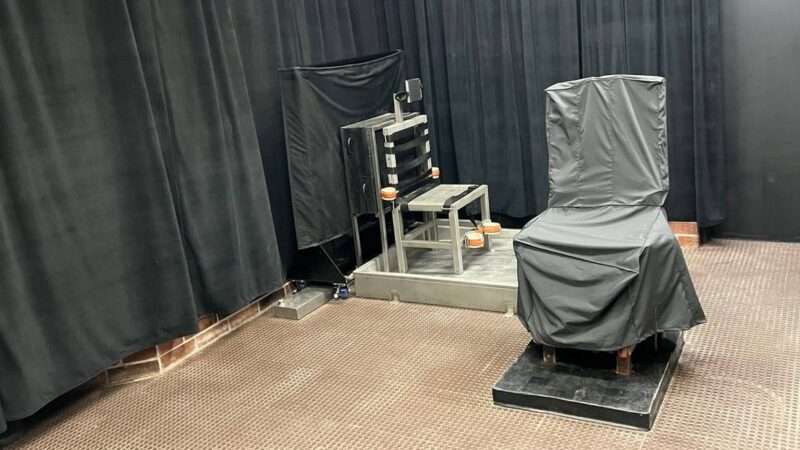
On Thursday, the South Carolina Supreme Court began hearing arguments in a case that could determine how—and if—executions are carried out in the state.
Plaintiffs argue that South Carolina's two preferred methods of execution—the electric chair and firing squad—violate state and federal constitutional prohibitions on cruel and unusual punishment.
The lawsuit was filed by three death row inmates in March 2022 after the South Carolina Department of Corrections announced that it was prepared to carry out executions by firing squad. The announcement came following the passage of a 2021 law, which—after the state ran out of lethal injection drugs and pharmaceutical companies refused to supply more of them—replaced lethal injection with the electric chair as the preferred method of execution in the state. Under the law, prisoners could also elect to die by firing squad, or lethal injection, should the state be able to obtain the necessary drugs. The state has not been able to carry out an execution since 2011 due to running out of lethal injection drugs.
If the case is eventually decided in favor of the defendants, South Carolina could become effectively barred from carrying out executions of its death-row prisoners, as they would have neither the drugs to kill inmates by lethal injection nor the legal ability to use their other proposed methods.
The death row inmates argue that execution by both the electric chair and firing squad violate protections against cruel and unusual punishment found in both South Carolina's state constitution and the U.S. Constitution. "The electric chair and the firing squad are antiquated, barbaric methods of execution that virtually all American jurisdictions have left behind," a lawyer for one plaintiff wrote in a motion filed in April 2022.
In September, a lower court agreed with the death row inmates, writing that South Carolina "ignored advances in scientific research and evolving standards of humanity and decency" when they passed the law allowing electric chair and firing squad executions. The lawsuit has since been appealed to the state's supreme court, which began hearing arguments on Thursday. The court is not expected to issue a ruling for several months, and an appeal from the losing party is also expected to draw litigation out further.
Regardless of the case's outcome, it's doubtful any of the methods presented to death row prisoners—electric chair, firing squad, or lethal injection—are in any way "humane." The tortuous process of death by lethal injection is well documented. So, too, is the excruciating death wrought by the electric chair. Even death by firing squad, while often considered the most humane of the three options, still carries significant potential to cause substantial suffering.
As one expert testified during lower court proceedings, "The animal husbandry community, after intense work, has concluded that they would not do to an animal in the slaughterhouse what is done in South Carolina in the death penalty."
Thus, the issues presented in this latest legal battle are unlikely to go away any time soon. Pharmaceutical companies have long refused to supply states with lethal injection drugs, and as supplies of these drugs dwindle, states are turning to alternative methods to kill their death-row prisoners. Alternate methods of execution—like the electric chair or firing squad—are allowed in 14 states. So far, eight people have died by these methods since 2010—seven by electric chair and one by firing squad.
The post South Carolina Supreme Court To Decide the Future of the Death Penalty in the State appeared first on Reason.com.







